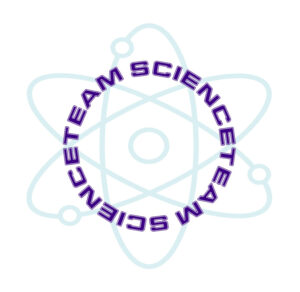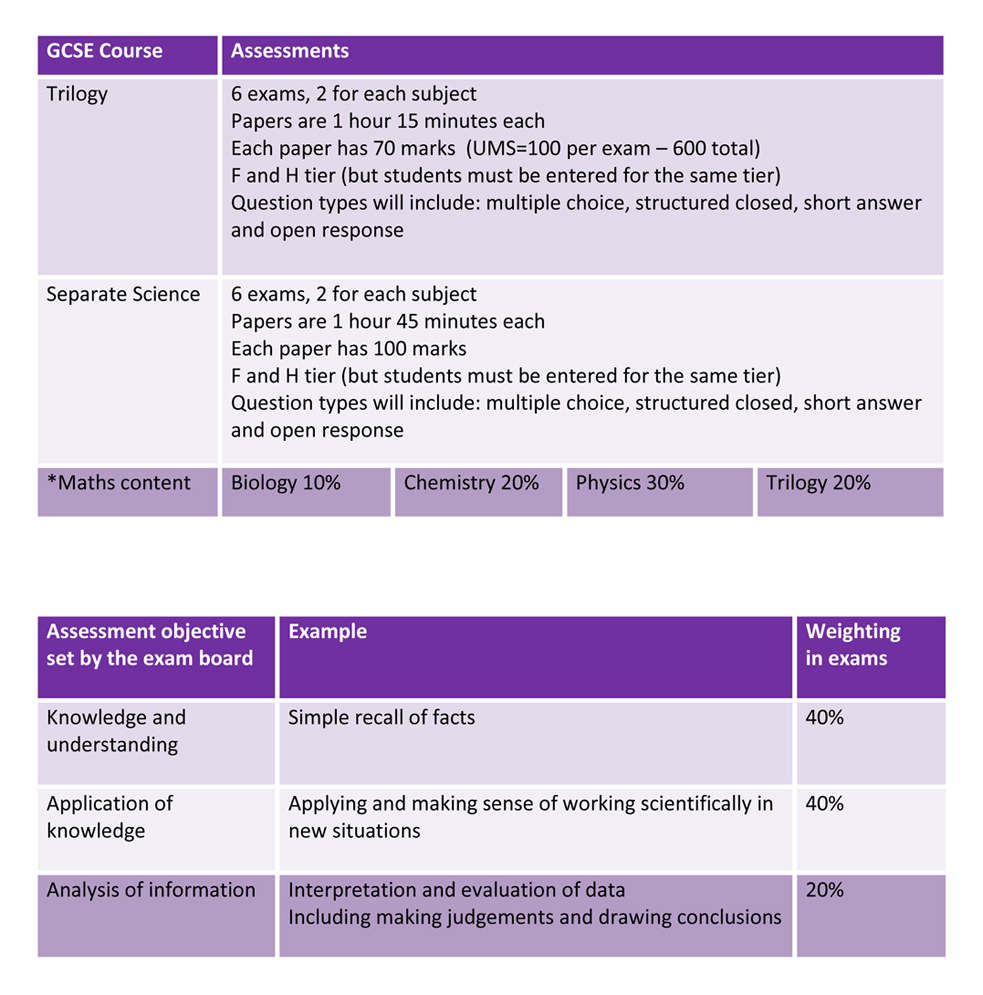Science
To view our curriculum plans, please click the following:
Year 7 Year 8 Year 9 Year 10 Year 11 Year 12 Year 13
To view the Science Department Feedback Policy, please click here.
Intent
Children have a natural curiosity for nature and it is our job as members of Team Science to enhance and sustain this by showing that science provides an understanding of the exciting physical, chemical and biological worlds around them. As specialist Science teachers, our purpose is to motivate, inspire and empower our pupils so that they will become responsible and educated ‘St Hilda’s scientists’ who will hold the future of the Earth and its resources in their safe hands. We aim to show how scientific advancement has the power to save lives and benefit the global community but also that there is a responsibility to use science wisely and not destructively. As effective role models, Science teachers can also show that science qualifications can open the door to many rewarding careers in STEM and the wider world.
Progression in learning is most effectively accomplished if the teacher has the responsibility for organising and facilitating learning and is not just following a script! However, we do need a firm subject knowledge and pedagogical foundation from which we can plan and deliver lessons that are engaging and challenging to all pupils. When pupils were asked what makes science lessons ‘enjoyable’, the main responses turned out to be ‘good teachers’ and ‘practical work’ (Wellcome Trust). Based on the National Curriculum (2015), BEST subject maps and exam syllabi, we are developing our schemes of work to accomplish this for our pupils at St Hilda’s.
Welcome to the wonderful world of team science
The Science curriculum we follow at St Hilda’s encompasses many issues of relevance to life in the 21st Century throughout Key Stages 3, 4 and 5.
At KS3 and 4, we teach a five year ‘spiral’ curriculum where key foundation concepts from KS2 are built upon and enhanced through the years.
Key biological, chemical and physical ideas are taught and revisited throughout years 7-13 whilst enhancing key scientific skills and knowledge of the wider world such as:
- Concepts of risk and problem solving.
- Practical skills.
- Investigative approaches, analysis of data and evaluation.
- Specialist vocabulary and language used when discussing scientific issues.
- Moral and Ethical issues raised by scientific and medical advances.
- Technological advancement and social and personal responsibilities within fields of science.
- Environmental issues, sustainability and respect for living things.
- Promoting good health and diet.
Key Stage 3
Students are taught Science in forms in year 7 and in two bands of three sets in year 8 by one or more Science teachers.
In year 9 they are taught in two bands of three sets by three subject specialists covering Biology, Chemistry and Physics.
The students in all year groups are following the National Curriculum for Science.
In year 9, we currently focus on the skills and needed for GCSE and have identified key crossover KS3/4 topics for maximum engagement and GCSE Trilogy Science preparation.
Key Stage 4
In year 10 all students study Biology, Chemistry and Physics, with 3 specialist teachers for a total of 12 hours a fortnight.
Some students will complete a dual award called GCSE Combined Science: Trilogy, and some will complete separate qualifications in Biology, Chemistry and Physics.
In year 10 we teach all content so that any course can be accessed and students can move set depending on progress made.
All of the above courses follow the AQA Science syllabus.
We will choose the most appropriate course for your child at the end of year 10; checking again that this is still the best for them after yr 11 mocks.
We ensure that students are on the right pathway for them and thus giving them the best chance of achieving higher qualifications is really important.
COMBINED SCIENCE: Trilogy vs Separates
GCSE Combined Science: Trilogy
Many of our students study Combined Science. The course is AQA Combined Science: Trilogy. They will study the three separate subjects. Biology, Chemistry and Physics and will be taught by subject specialists. Examinations are at the end of year 11 and take the form of two Biology, two Chemistry and two Physics papers. Each paper is 1 hour 15 minutes long. The marks are added together to produce two grades for Combined Science. Students can still access AS and A2 courses from Combined Science.
Separate Sciences
Up to two sets in year 11 study the AQA Separate Science courses. Students who study separate science must study all three Science subjects; there is not the option to study two of the three. Separate sciences each have more higher level content in some areas and more required practical elements.
Examinations are at the end of year 11 and take the form of two biology, two chemistry and two physics papers. Each paper is 1 hour 45 minutes long. The results are reported as separate grades for Biology, Chemistry and Physics.
GCSE Required Practical Activities
Controlled assessment has been replaced with a set of required practical activities.
Students need to complete 8 practicals for Biology, Chemistry and Physics and 16 for Combined Science: Trilogy.
Students will then be assessed on their practical skills in their exams with at least 15% of the marks coming from questions related to practicals that they have completed in class.
Further information regarding our curriculum is available from:
Mrs Suzie Harrison – Director of STEM/Assistant Headteacher
Miss R Edwards (Biology)
Dr E Meredith (Chemistry)
Details of extracurricular activities
We run a Science club and an eco-club that all students are welcome to attend. As a newly designated STEM school we have lots of plans to involve students in all things Science, Technology, Maths and Creative technologies – watch this space! We will be running ‘Future Fridays’ where up todate live broadcasts will be delivered to all at lunchtime by a number of different people in exciting scientific , technological and creative fields.
Our ECO club works alongside a waste management company to ensure whole school recycling and plastic use is at the forefront of everyones’ minds.
We are also a designated Smallpeice school so we offer a number of specialised STEM days for different year groups supported by them – all promoting scientific careers.
Some of our students enjoyed growing rocket seeds and met Tim Peake. Many of our students have enjoy visits to the Big Bang Fair, GCSE Science live and A-level Science live. Our sixth form students are offered an number of wider opportunities to get involved. They can become Science Ambassadors and mentors in school. With our support studenbts can be awarded Nuffield research placements, hospital placements and other trips to universities and industries.
Team Science run master classes for Year 11 students but also provide a drop in every Wednesday for any student who wants help or advice.
Year 9 at the Big Bang Fair
Year 7 practical work
Science club
A-level practical
Useful links
On student desktops – Focus-e learning – help for all GCSE and KS3 Science
Websites and other support
http://www.aqa.org.uk/subjects/science/gcse
http://www.my-gcsescience.com/
http://www.bbc.co.uk/education
http://www.physicsclassroom.com/
St Hilda’s College
A Level Biology
Introduction including full details of specification
|
|
Autumn Term |
Spring Term |
Summer Term |
|
Year 12 |
Biological molecules Cell Structure and Division Cell Membranes Cells and the Immune System Require practical 1, 2, 3 and 4 |
Immune system Exchange and Transport Systems DNA, RNA and Protein Synthesis Diversity and Selection Statistics Required practical 5 and 6 |
Diversity and Classification AS examinations |
|
Year 13 |
Photosynthesis and respiration Energy transfer and nutrient cycles Stimulus and response Nervous coordination Homeostasis Essay Required practical 7, 8, 9 and 10 |
Muscles Genetics Population and evolution Population and Mutations and gene expression More essays Required practical 11 and 12 |
Genome projects and genome technologies A Level examinations |
Detailed specification is available at http://www.aqa.org.uk/subjects/science/as-and-a-level/biology-7401-7402
Textbooks used:
CGP A Level Year 1 and 2 (AQA) – provided by the school
CGP Head Start to A Level Biology (Bridging the gap between GCSE and A Level) – available to order (usually £2.50).
Further reading/resources:
https://library.cgpbooks.co.uk/ (further resources online resources to support course)
http://filestore.aqa.org.uk/resources/biology/AQA-7401-7402-PHBK.PDF
http://www.bozemanscience.com/biology-main-page
https://alevelbiology.co.uk/revision/ (resources provided by the school subscription)
https://www.saps.org.uk/secondary/teaching-resources
A Level Chemistry
Introduction including full details of specification
|
|
Autumn Term |
Spring Term |
Summer Term |
|
Year 12 |
Atomic structure Amount of substance Introduction to organic chemistry |
Bonding Energetics Kinetics Alkanes Halogenoalkanes Alkenes |
Chemical equilibria Oxidation, reduction and redox equations Periodicity Group 2, the alkaline earth metals Group 7(17), the halogens Alcohols Organic analysis |
|
Year 13 |
Thermodynamics Rate Equations Electrode potentials and electrochemical cells Transition metals Reactions of ions in aqueous solution Optical isomerism Aldehydes and ketones Carboxylic acids and derivatives |
Equilibrium constant Kp for homogeneous systems Properties of Period 3 elements and their oxides Acids and bases Aromatic chemistry Amines Polymers Nuclear magnetic resonance |
Amino acids, proteins and DNA Organic synthesis spectroscopy Chromatography |
Detailed specification is available at http://www.aqa.org.uk/subjects/science/as-and-a-level/chemistry-7404-7405
Textbooks used:
Collins AQA A-level Science – AQA A-level Chemistry Year 1 Student book
Collins AQA A-level Science – AQA A-level Chemistry Year 2 Student book
CGP A-Level Chemistry Year 1 and 2
Further reading/resources:
chemrevise.org
chemguide.co.uk
rsc.org
A Level Physics
Introduction including full details of specification
|
Autumn Term |
Spring Term |
Summer Term |
|
|
Year 12 |
Foundations of Physics Motion Forces in Action Charge and Current Energy, Power and Resistance Electrical Circuits |
Work, Energy and Power Materials Waves |
Laws of Motion and Momentum Quantum Physics |
|
Year 13 |
Thermal Physics Ideal Gases Circular Motion Oscillations Electric and Magnetic Fields |
Gravitational Fields Capacitance Particle Physics Radioactivity Nuclear Physics Medical Imaging |
Cosmology Stars |
Detailed specification is available at http://www.ocr.org.uk/qualifications/as-a-level-gce-physics-a-h156-h556-from-2015/
Textbooks used:
A-level Physics for OCR: Oxford
Further reading/resources:
http://www.antonine-education.co.uk/
http://www.practicalphysics.org/
http://www.physicsclassroom.com/
Advanced Physics for You textbook













